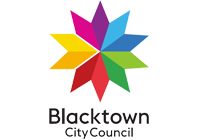Willmot
Households without children
In Willmot, older couples without children account for 6% of total households in 2021.
Households without Children include couples without children and lone person households. They require different services depending on the age of the people in the households. For example young couples who have not had children (yet) compared to older "empty nester" couples whose children may have left home.
For Households without Children in Willmot, life stage is based on the age of the household reference person (usually person 1 on the Census form):
- Young: Aged 15-44
- Middle-aged: Aged 45-64
- Older: Aged 65 and over
To continue building the story, Willmot's Household data should be viewed in conjunction with Household Size, Age Structure and Dwelling Type.
Derived from the Census question:
'What is the person's relationship (to each other person in the household)?'
Households
Source: Australian Bureau of Statistics, Census of Population and Housing (opens a new window) 2016 and 2021. Compiled and presented by .id (opens a new window)(informed decisions).
(Enumerated data)

Compiled and presented in profile.id by .id (informed decisions).

Compiled and presented in profile.id by .id (informed decisions).
Dominant groups
Analysis of the households without children in Willmot in 2021 compared to Ropes Crossing shows that there was a smaller proportion of young couples without children, a similar proportion of middle-aged couples without children, and a larger proportion of older couples without children.
In addition, there were a similar proportion of young lone person households, a larger proportion of middle-aged lone person households, and a larger proportion of older lone person households.
Emerging groups
Between 2016 and 2021, the number of households without children increased by 46.
There were no major differences in Willmot between 2016 and 2021.
